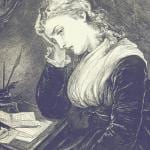These comments reflect and build upon some private correspondence from James B. Jordan, August 2004.
1) Like many of Shakespeare plays, MSND works on an opposition between city and country, between the civilized world and a natural ?green world?E(Northrop Frye). Within the city, law rules, even thought it inhibits desire, love, and human happiness. It is an obstacle to human happiness. Outside the city is a world of fairy, the world of magic and grace that has the power to temper the order of law in the city.
2) Jordan points out that the play takes place in Athens (easy enough to forget, since the characters hardly seem Athenian). This is the city of reason and law, a preChristian world of law. But the ancient preChristian world of law is threatened by the very law that maintains order. For true order to be established, magic must intervene. If it doesn?t, then things end as they end in the Pyramus and Thisbe play performed at the end: The wall of law, of the father?s will, leads to the lovers?Edeath. Unless the dividing wall is broken down, there is no final happiness or final order.
3) Magic first of all kills and causes disorder. Oberon knows how to rightly order the lovers from the beginning, but Puck makes a muck of it. Everyone gets more confused through the night, the night that represents a kind of death. Love seems to die in the night, and confusion and chaos reign. But through the night of death, Oberon is moving the lovers toward a morning resurrection. Once the lovers have passed through the confusion of the night, they can reenter the city, bringing the ?resurrection life?Eof the wood into Athens. Thus, within the preChristian world of Athens, there is a move from law to grace, a kind of transition from Old to New within the confines of the Old. Athens cannot be reasonable and orderly only on the basis of reason and order; the only true order is the order that comes from grace.
4) Jordan points out that the order established at the end of the play comes through the union of opposite poles, through a series of ?marriages?E
The Greek Theseus marries the barbarian Amazon Hippolyte
The eastern Oberon is married to the western Titania
The lovers unite high and low (see below)
Sun and moon
Grace and reason
5) Jordan suggests that the names of the various lovers point to their symbolic, and particularly their astrological, significance. Hermia (Hermes) is Mercury, and Helen (= Selene) is associated with the moon. Mercury, is in a higher sphere than the moon, and this perhaps points to either the social or the moral statue of the two women, with Hermia at a higher level than Helen. Lysander appears to come from the Greek, combining the verb luo (= ?loose?E and the noun ander (= ?man?E, with the meaning ?Freedman.?EDemetrius perhaps links with the goddess Demeter, who is in charge of the vegetable cycle of sowing and harvest and to that extent associated with the sun. Jordan suggests that the union of Hermia and Lysander is a union of high and low, while the union of Helen and Demetrius is the union of sun and moon. Thus, the eventual outcome of the confused romances is an order that has cosmic resonances; with his love-potion, Oberon ensures that the cosmos is rightly arranged, so that it is evident that God is in His heaven and all is right with the world.















